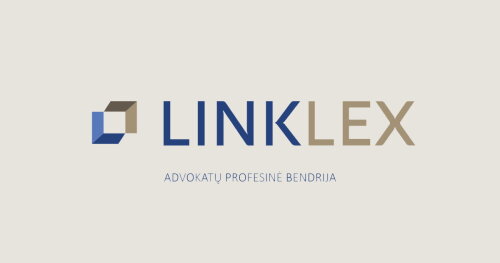Best Antitrust Lawyers in Republic of Lithuania
Share your needs with us, get contacted by law firms.
Free. Takes 2 min.
Or refine your search by selecting a city:
List of the best lawyers in Republic of Lithuania
About Antitrust Law in Republic of Lithuania:
Antitrust law in the Republic of Lithuania is designed to promote fair competition and prevent anti-competitive practices in the market. The primary laws governing antitrust in Lithuania include the Law on Competition and the Law on the Control of Concentrations.
Why You May Need a Lawyer:
You may need a lawyer for antitrust issues in Lithuania if you are facing allegations of anti-competitive behavior, need to navigate merger control regulations, or require legal advice on competition law compliance.
Local Laws Overview:
Under Lithuanian antitrust law, companies are prohibited from engaging in agreements that restrict competition, abuse of dominant market positions, and engaging in anti-competitive mergers. The Competition Council of the Republic of Lithuania is responsible for enforcing these laws and investigating antitrust violations.
Frequently Asked Questions:
1. What constitutes an anti-competitive agreement in Lithuania?
In Lithuania, agreements between companies that have as their object or effect the prevention, restriction, or distortion of competition in the market are considered anti-competitive and prohibited by law.
2. How is a dominant market position defined in Lithuania?
A company is considered to hold a dominant market position in Lithuania if it has significant market power that allows it to act independently of its competitors, customers, and consumers.
3. What are the key penalties for antitrust violations in Lithuania?
Penalties for antitrust violations in Lithuania can include fines, legal measures to restore competition, and the dissolution of anti-competitive agreements.
4. How can I report an antitrust violation in Lithuania?
You can report an antitrust violation to the Competition Council of the Republic of Lithuania by submitting a complaint through their official website or by contacting their office directly.
5. What is the process for obtaining merger control approval in Lithuania?
Companies seeking to merge in Lithuania must notify the Competition Council of their proposed merger and undergo a review process to ensure the merger does not significantly reduce competition in the market.
6. Are there any exemptions to antitrust laws in Lithuania?
There are certain exemptions to antitrust laws in Lithuania, such as agreements that contribute to improving production or distribution, or agreements that benefit consumers by fostering innovation.
7. How long does an antitrust investigation typically take in Lithuania?
The length of an antitrust investigation in Lithuania can vary depending on the complexity of the case, but investigations are typically completed within a few months to a year.
8. Can individuals be held personally liable for antitrust violations in Lithuania?
Individuals, including company directors and employees, can be held personally liable for antitrust violations in Lithuania if they were directly involved in the anti-competitive conduct.
9. What are the competition enforcement priorities in Lithuania?
The Competition Council of the Republic of Lithuania focuses on preventing anti-competitive agreements, abuse of dominant positions, and ensuring fair competition in the market to protect consumers and promote economic efficiency.
10. How can I ensure compliance with antitrust laws in Lithuania?
To ensure compliance with antitrust laws in Lithuania, companies should seek legal advice, conduct internal audits of their business practices, and stay informed of changes in competition law regulations.
Additional Resources:
For more information on antitrust law in Lithuania, you can visit the official website of the Competition Council of the Republic of Lithuania or consult with a qualified antitrust lawyer for legal advice.
Next Steps:
If you require legal assistance with antitrust issues in Lithuania, it is advisable to contact a reputable law firm specializing in competition law to discuss your case and determine the best course of action.
Lawzana helps you find the best lawyers and law firms in Republic of Lithuania through a curated and pre-screened list of qualified legal professionals. Our platform offers rankings and detailed profiles of attorneys and law firms, allowing you to compare based on practice areas, including Antitrust, experience, and client feedback.
Each profile includes a description of the firm's areas of practice, client reviews, team members and partners, year of establishment, spoken languages, office locations, contact information, social media presence, and any published articles or resources. Most firms on our platform speak English and are experienced in both local and international legal matters.
Get a quote from top-rated law firms in Republic of Lithuania — quickly, securely, and without unnecessary hassle.
Disclaimer:
The information provided on this page is for general informational purposes only and does not constitute legal advice. While we strive to ensure the accuracy and relevance of the content, legal information may change over time, and interpretations of the law can vary. You should always consult with a qualified legal professional for advice specific to your situation.
We disclaim all liability for actions taken or not taken based on the content of this page. If you believe any information is incorrect or outdated, please contact us, and we will review and update it where appropriate.
Browse antitrust law firms by city in Republic of Lithuania
Refine your search by selecting a city.















